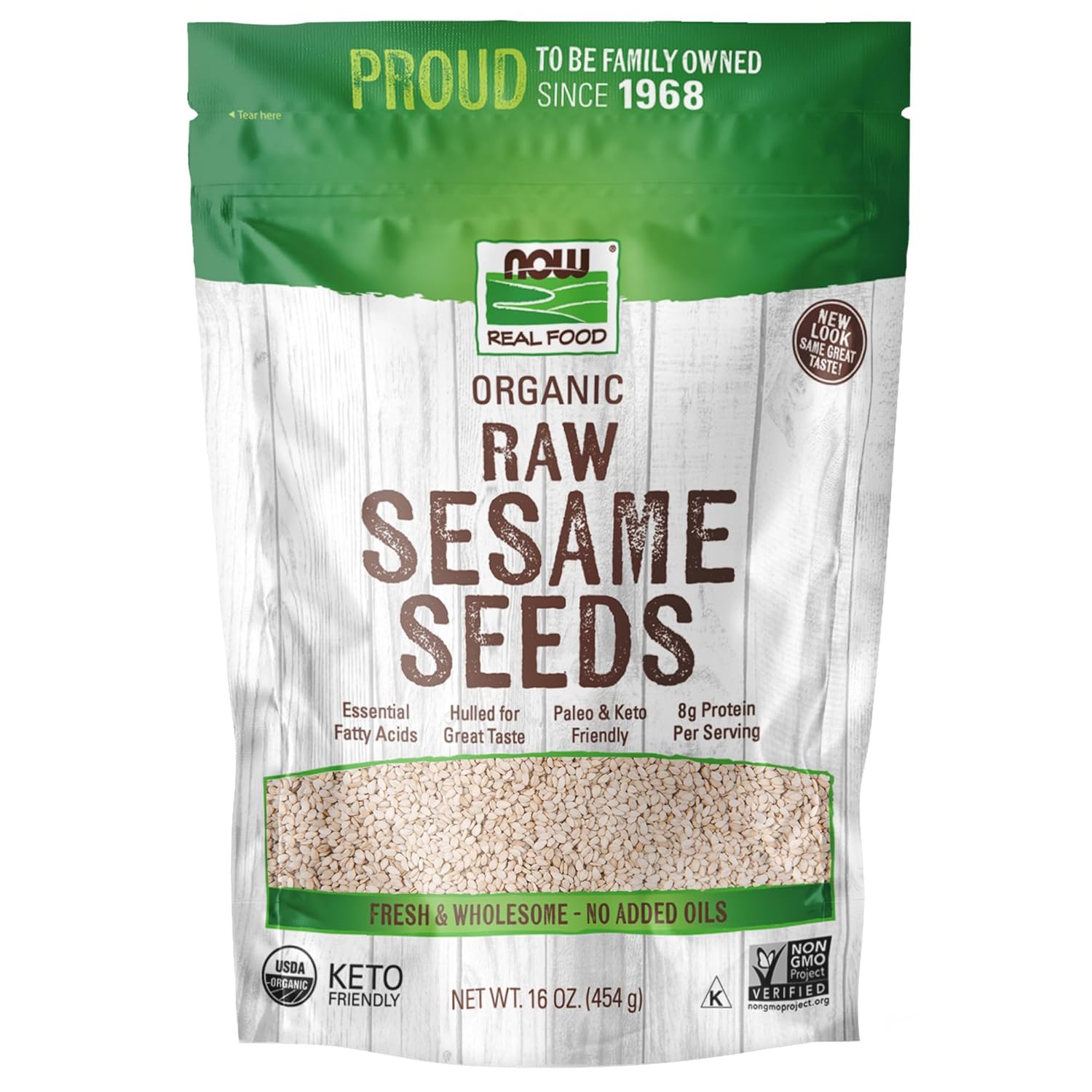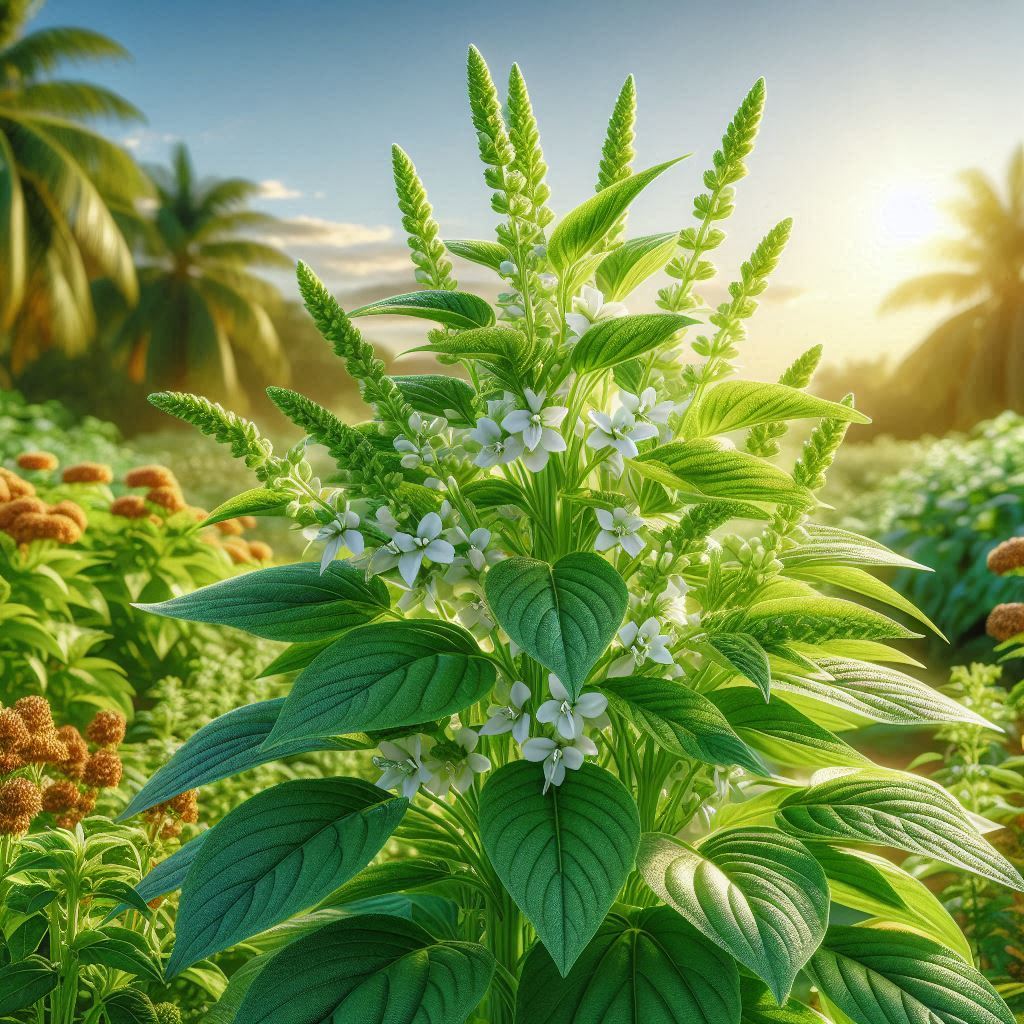Those who are in a Hurry,
Certified Organic Sesame Seeds

The sesame plant, scientifically known as Sesamum indicum, is one of the oldest cultivated plants in the world. Its tiny seeds have been cherished for thousands of years, not just for their nutty flavor but also for their incredible health benefits and versatility. Whether you’re a food enthusiast, a health-conscious individual, or someone looking to explore the wonders of nature, the sesame plant has something to offer. In this article, we’ll dive deep into the world of sesame, exploring its history, uses, benefits, and much more.
What is the Sesame Plant?
The sesame plant is an annual flowering plant that grows in tropical and subtropical regions. It can reach heights of up to 6 feet and produces delicate white or pink flowers. These flowers eventually give way to seed pods, which contain the precious sesame seeds. The seeds come in various colors, including white, black, brown, and golden, each with its unique flavor and nutritional profile.
Sesame seeds are tiny, but they pack a punch when it comes to nutrition. They are rich in healthy fats, protein, fiber, vitamins, and minerals, making them a staple in many cuisines and traditional medicines worldwide.

A Brief History of Sesame
Sesame has a rich history that dates back over 5,000 years. It is believed to have originated in Africa or India and was highly valued in ancient civilizations like Egypt, Babylon, and Assyria. The Egyptians used sesame oil for medicinal purposes, while the Chinese burned sesame oil in lamps and used it in ink blocks.
The phrase “Open Sesame,” made famous by the tale of Ali Baba and the Forty Thieves, is a testament to the seed’s cultural significance. It symbolizes something small that holds great value, much like the sesame seed itself.
Nutritional Profile of Sesame Seeds
Sesame seeds are a nutritional powerhouse. Here’s a breakdown of what they offer:
- Healthy Fats: Sesame seeds are rich in polyunsaturated and monounsaturated fats, which are good for heart health.
- Protein: They provide a decent amount of plant-based protein, making them a great addition to vegetarian and vegan diets.
- Fiber: The seeds are a good source of dietary fiber, aiding digestion and promoting gut health.
- Vitamins and Minerals: Sesame seeds are loaded with calcium, magnesium, iron, zinc, and B vitamins.
- Antioxidants: They contain compounds like sesamin and sesamol, which have anti-inflammatory and antioxidant properties.
Health Benefits of Sesame Seeds
- Supports Heart Health
The healthy fats and antioxidants in sesame seeds help reduce bad cholesterol (LDL) and increase good cholesterol (HDL), promoting cardiovascular health. - Boosts Bone Health
Sesame seeds are an excellent source of calcium and magnesium, both of which are essential for maintaining strong bones and preventing osteoporosis. - Aids Digestion
The high fiber content in sesame seeds helps regulate bowel movements and supports a healthy digestive system. - Manages Blood Sugar Levels
Sesame seeds have a low glycemic index and contain compounds that may help regulate blood sugar levels, making them a great choice for diabetics. - Promotes Skin and Hair Health
The zinc and antioxidants in sesame seeds contribute to healthy skin and hair. Sesame oil is often used in skincare routines for its moisturizing and anti-aging properties.
Culinary Uses of Sesame Seeds
Sesame seeds are incredibly versatile in the kitchen. Here are some popular ways to use them:
- As a Topping: Sprinkle sesame seeds on salads, stir-fries, or baked goods for added crunch and flavor.
- In Tahini: Tahini, a paste made from ground sesame seeds, is a key ingredient in hummus and Middle Eastern dishes.
- In Baking: Sesame seeds are used in bread, crackers, and desserts like halva.
- As Oil: Sesame oil is a popular cooking oil in Asian cuisine, known for its rich, nutty flavor.
How to Grow Sesame Plants
If you’re interested in growing your sesame plants, here’s what you need to know:
- Climate: Sesame plants thrive in warm, tropical climates with plenty of sunlight.
- Soil: They prefer well-drained, fertile soil with a neutral pH.
- Planting: Sow the seeds directly into the ground after the last frost. Space them about 12 inches apart.
- Watering: Sesame plants are drought-tolerant but require regular watering during the germination stage.
- Harvesting: The seed pods will mature and split open when ready. Harvest the seeds by cutting the pods and drying them in the sun.
FAQs About Sesame Plants
1. Are sesame seeds gluten-free?
Yes, sesame seeds are naturally gluten-free, making them a safe option for people with celiac disease or gluten intolerance.
2. Can sesame seeds help with weight loss?
Sesame seeds are high in fiber and protein, which can help you feel full and reduce overeating. However, they are also calorie-dense, so moderation is key.
3. What’s the difference between black and white sesame seeds?
Black sesame seeds have a stronger, slightly bitter flavor and are often used in traditional medicine. White sesame seeds are milder and more commonly used in cooking.
4. Is sesame oil good for cooking?
Yes, sesame oil is great for cooking, especially in stir-fries and Asian dishes. However, it has a low smoke point, so it’s best used for low to medium-heat cooking.
5. Can I eat sesame seeds raw?
Yes, sesame seeds can be eaten raw, roasted, or cooked. Roasting enhances their flavor and aroma.
6. Are sesame seeds safe for pets?
In small amounts, sesame seeds are safe for pets and can provide some nutritional benefits. However, always consult your vet before introducing new foods to your pet’s diet.
Where to Buy Sesame Seeds and Products
If you’re looking to incorporate sesame seeds into your diet or skincare routine, there are plenty of options available. You can check the product through our link. You can find them at your local grocery store, health food shops, or online retailers. For high-quality sesame seeds and products, consider checking out affiliate links to trusted brands that offer organic and sustainably sourced options.
Conclusion
The sesame plant is a true gift from nature, offering a wealth of benefits in its tiny seeds. From boosting heart health to adding flavor to your favorite dishes, sesame seeds are a versatile and nutritious addition to any lifestyle. Whether you’re growing your sesame plants or simply sprinkling the seeds on your morning toast, there’s no denying the mighty impact of this humble plant.
So, why not try sesame seeds? Your body, taste buds, and even your skin will thank you!
